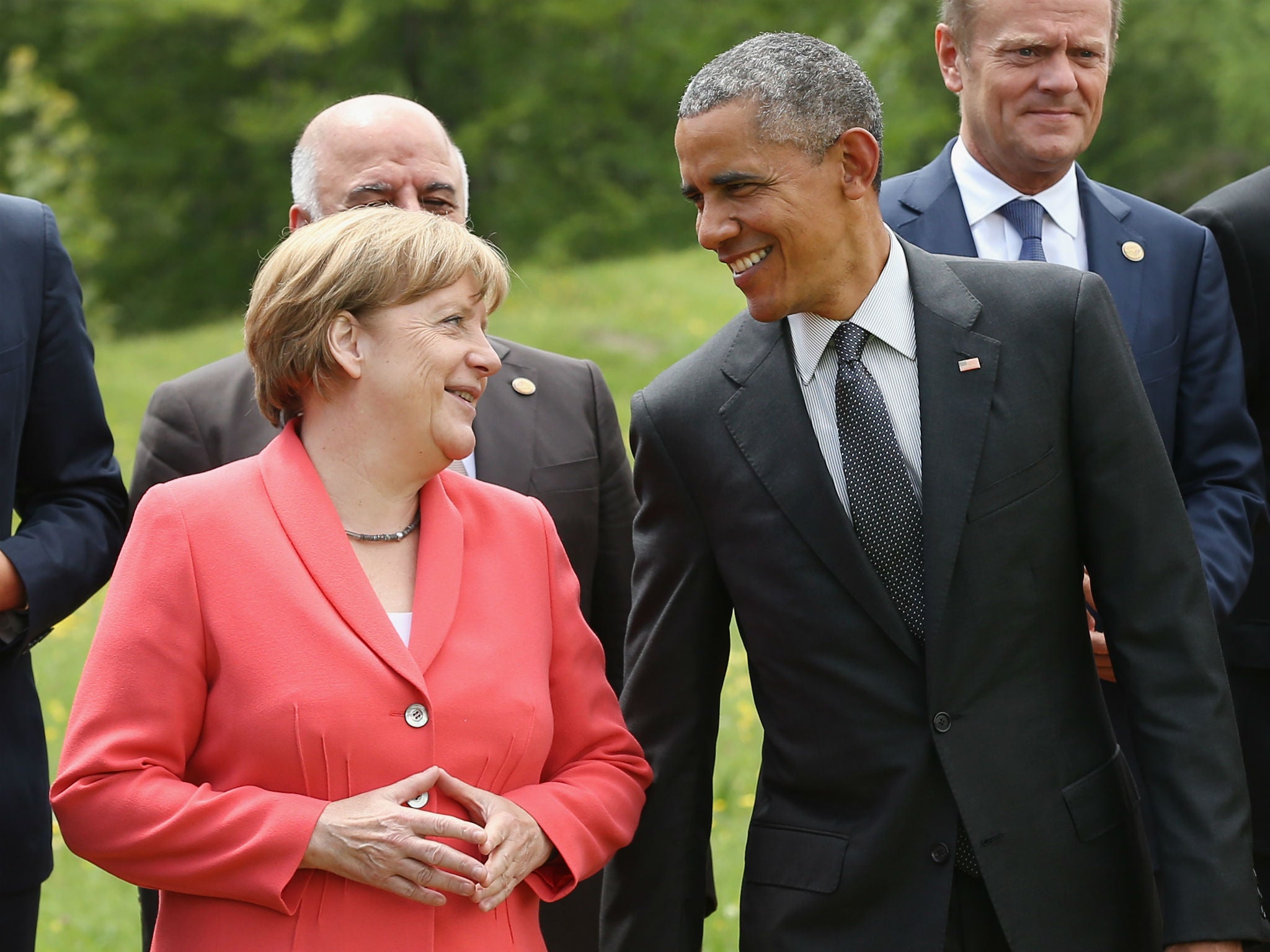TTIP: Survey shows plunging support for trade deal in Germany and the US
The agreement between the US and Europe is losing momentum in the face of less public support

Your support helps us to tell the story
From reproductive rights to climate change to Big Tech, The Independent is on the ground when the story is developing. Whether it's investigating the financials of Elon Musk's pro-Trump PAC or producing our latest documentary, 'The A Word', which shines a light on the American women fighting for reproductive rights, we know how important it is to parse out the facts from the messaging.
At such a critical moment in US history, we need reporters on the ground. Your donation allows us to keep sending journalists to speak to both sides of the story.
The Independent is trusted by Americans across the entire political spectrum. And unlike many other quality news outlets, we choose not to lock Americans out of our reporting and analysis with paywalls. We believe quality journalism should be available to everyone, paid for by those who can afford it.
Your support makes all the difference.One of the most controversial free market agreements in recent history is facing plunging public support.
Support in the US has fallen from 53 per cent in 2014 to 18 per cent today, while Germans in favour of the deal have dropped from 55 per cent two years ago to just 17 per cent in 2016.
The survey, conducted by YouGov for the Bertelsmann Foundation, is bound to cast a shadow over TTIP talks between German Chancellor Angela Merkel and US President Barack Obama in the next few days.
More than 130,000 people signed a petition from campaign group 38 Degrees urging Mr Obama to quit negotiating the deal with Prime Minister David Cameron during his visit to the UK on Thursday.
Despite increasing public pessimism over the free market, which protesters say empowers corporations to cut labour, product and consumer protection standards, German officials are positive they can reach a “political agreement” before Mr Obama leaves the White House in January, as reported by Reuters.
German Economy Minister Sigmar gabriel said the negotiations are “frozen up” and questioned whether the US really wanted to strike ahead.
“Support for trade agreements is fading in a country that views itself as the global export champion,” said Aart de Geus, chairman and chief executive of the Bertelsmann Foundation.
In the US, leading presidential candidates like Donald Trump and Bernie Sanders have spoken against TTIP. They also criticized an earlier version of the market deal, which has been negotiated and is awaiting a vote in Congress, called the Trans-Pacific Partnership pact.
TTIP, if agree on, would affect around 800 million people, according to the Deutsche Welle.
Yet many people feel like they are in the dark. Almost half of Germans and Americans - 48 per cent and 46 per cent respectively - say the deal lacks transparency and do not feel sufficiently informed, the survey found.
The Obama administration first pushed hard for TTIP, but negotiations were supposed to conclude at the end of 2014.
Talks resume on Monday in New York.
Join our commenting forum
Join thought-provoking conversations, follow other Independent readers and see their replies
Comments